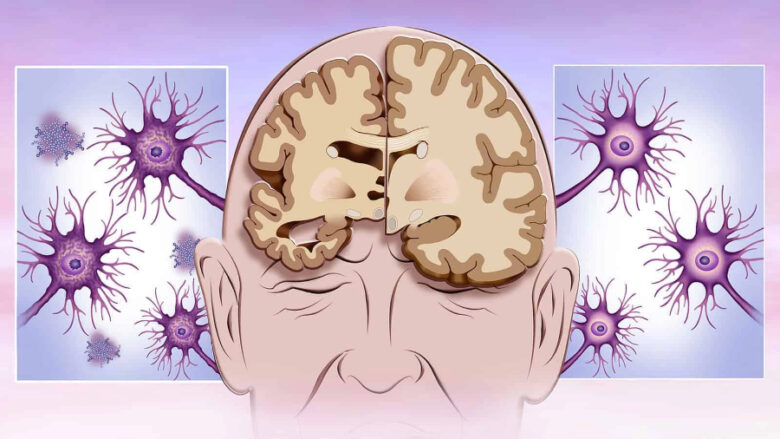When it comes to unraveling the complexities of Alzheimer’s disease, genetics plays a critical role. Researchers have been rigorously exploring how hereditary traits contribute to both the risk and progression of this debilitating condition. Understanding the genetic factors can lead to breakthroughs in prevention, diagnosis, and treatment, bringing hope to millions affected worldwide.
By delving into the intricate relationship between our DNA and Alzheimer’s, new insights emerge that could revolutionize the management of the disease. Keep reading to discover how genetics intertwine with Alzheimer’s and what this means for future generations.
Contents
- Exploring the Genetic Links to Alzheimer’s Disease
- Unpacking the Impact of Family History on Alzheimer’s Susceptibility
- Breakthroughs in Genomic Research and Alzheimer’s Prevention
- Unraveling the Epigenetic Landscape of Alzheimer’s Disease
- The Interplay Between Neuroinflammation and Genetic Factors in Alzheimer’s
- Addressing Health Disparities in Alzheimer’s Genetics Research
- Harnessing Big Data and Machine Learning in Alzheimer’s Genetics
- Ethical Considerations in Genetic Testing for Alzheimer’s Disease
Exploring the Genetic Links to Alzheimer’s Disease

Alzheimer’s disease is closely linked to certain genetic mutations, particularly in genes like APP, PSEN1, and PSEN2, which are associated with early-onset familial cases. While rare, these mutations highlight a clear hereditary pattern within families. However, for the more common late-onset form of the disease, the genetic picture is more intricate, involving numerous genes that slightly influence susceptibility. These genes likely interact with lifestyle and environmental factors, complicating risk assessment.
Genome-wide association studies (GWAS) have been instrumental in pinpointing genetic markers associated with Alzheimer’s risk, shedding light on potential treatment avenues. With advancements, genetic testing for Alzheimer’s risk is becoming increasingly accessible, aided by resources from organizations like The Fisher Center for Alzheimer’s Research Foundation. Understanding these genetic connections is crucial in the quest to manage and ultimately cure Alzheimer’s.
Unpacking the Impact of Family History on Alzheimer’s Susceptibility
A family history of Alzheimer’s disease significantly raises the risk of developing the condition, indicating a strong genetic component. If one or both parents have Alzheimer’s, their children are at a higher risk, underscoring the need for increased vigilance for early signs and adopting risk-reducing behaviors.
However, family history encompasses more than inherited genes; it includes shared environments, lifestyles, and exposure to potential risk factors. This complexity aids researchers in identifying genetic contributors to the disease.
Genetic counseling is crucial for individuals with a family history of Alzheimer’s. Counselors provide information on the risk of inheriting or passing on Alzheimer’s genetics and discuss the benefits and limitations of genetic tests, contributing to preventive health strategies for at-risk families.
Although a family history increases susceptibility to Alzheimer’s, it is not a definitive predictor. Many individuals with a family history never develop the disease, highlighting its genetic complexity. Ongoing global research initiatives aim to further understand these dynamics.
Breakthroughs in Genomic Research and Alzheimer’s Prevention

Recent breakthroughs in genomic research are reshaping our approach to tackling Alzheimer’s disease. Next-generation sequencing techniques now allow scientists to pinpoint specific genetic variations linked to the condition, enabling the creation of detailed genetic risk profiles for early intervention strategies.
Gene-editing technologies such as CRISPR-Cas9 offer promising avenues for correcting harmful genetic mutations implicated in Alzheimer’s, potentially paving the way for genetic therapies. Genomic research is also uncovering how lifestyle and environmental factors interact with genetic predispositions, informing personalized preventive strategies tailored to individuals.
The integration of genomic data with clinical research is enhancing our understanding of Alzheimer’s pathology, leading to the development of targeted therapies and more precise drug treatments. As genomic knowledge continues to advance, it offers hope for delaying or preventing the onset of Alzheimer’s disease.
Unraveling the Epigenetic Landscape of Alzheimer’s Disease
Beyond genetic mutations, epigenetic modifications play a crucial role in the development and progression of Alzheimer’s disease. Epigenetics involves changes in gene expression that don’t alter the DNA sequence itself but can influence how genes are turned on or off.
Factors such as diet, stress, and environmental toxins can affect epigenetic markers, potentially impacting an individual’s susceptibility to Alzheimer’s. Understanding these epigenetic mechanisms opens up new avenues for targeted interventions and personalized treatment strategies.
The Interplay Between Neuroinflammation and Genetic Factors in Alzheimer’s

Source: sciencenews.org
Neuroinflammation, characterized by the activation of immune cells in the brain, is increasingly recognized as a key player in Alzheimer’s pathology. Emerging research suggests intricate connections between genetic factors and neuroinflammatory processes, with certain genetic variations predisposing individuals to heightened inflammatory responses.
This bidirectional relationship underscores the importance of exploring anti-inflammatory therapies as adjuncts to traditional treatments for Alzheimer’s. Furthermore, deciphering the genetic basis of neuroinflammation could lead to the development of novel therapeutic targets aimed at modulating immune responses in the brain.
Addressing Health Disparities in Alzheimer’s Genetics Research
While genetics research holds promise for understanding and combating Alzheimer’s disease, it’s essential to address health disparities that may affect the inclusivity and equity of genetic studies. Historically, minority populations have been underrepresented in genetic research, leading to gaps in our understanding of how genetic factors contribute to Alzheimer’s risk across diverse ethnic groups.
Harnessing Big Data and Machine Learning in Alzheimer’s Genetics

Source: bitsathy.ac.in
The advent of big data analytics and machine learning techniques has revolutionized our ability to analyze vast amounts of genetic information in Alzheimer’s research. By leveraging large-scale genomic datasets, researchers can identify subtle genetic patterns and interactions that contribute to disease susceptibility and progression.
Machine learning algorithms can then integrate genetic data with clinical, lifestyle, and environmental factors to generate predictive models for personalized risk assessment and treatment planning.
Ethical Considerations in Genetic Testing for Alzheimer’s Disease

Source: hackensackmeridianhealth.org
Genetic testing for Alzheimer’s disease raises significant ethical concerns. The decision to undergo testing carries implications for psychological well-being, privacy, and the potential for discrimination. Informed consent, with a thorough understanding of potential outcomes and limitations, is essential. Genetic counseling aids in making informed decisions aligned with personal values and goals.
Disclosure of genetic information involves balancing privacy rights with potential benefits to family members. Legislation like the Genetic Information Nondiscrimination Act (GINA) provides some protection, but gaps remain.
As genetic testing becomes more common, ethical guidelines must adapt to address these complexities. Collaboration among scientists, ethicists, policymakers, and the public is crucial for crafting policies that safeguard individuals and support Alzheimer’s research.
Overall, genetics exerts a significant and diverse influence on Alzheimer’s disease, impacting susceptibility, onset, and advancement. Ongoing genetic research provides valuable insights into how inherited traits can predict Alzheimer’s risk or alter its trajectory. This exploration of genetics presents promising prospects for preventing, managing, and ultimately defeating this debilitating condition.
